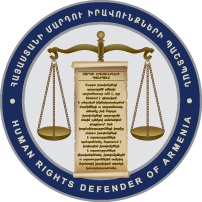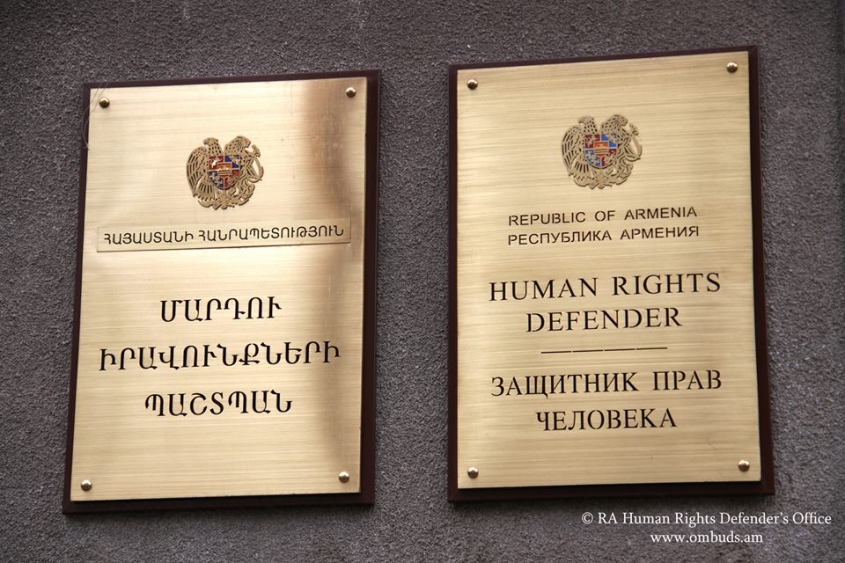The Human Rights Defender of Armenia summarized the events that took place in Ijevan from the human rights perspective which leads to the following:
1. Immediately after receiving information about the blocking of Yerevanyan and Ijevanyan streets crossroad in Ijevan by a group of people and clashes between citizens and the Police, the Defender started a round-the-clock monitoring of the events.
2. According to the official clarifications, the reason for blocking the road and clashes was the ban on illegal loggings imposed by the Police.
3. Immediately after the publication of this information, the Defender initiated a discussion procedure upon own initiative.
4. In the evening of 17 July, complaints were received via hotline of the Human Rights Defender’s Office. According to the calls, people were stuck on the street in cars with their families, including with minor children and were unable to reach their destination due to the blocking of the streets. The complainants also informed that there had been clashes as a result of which civilians and police officers had received injuries.
5. By the Defender’s decision, on 18 July 2019 early in the morning a working group was dispatched to Ijevan city of Tavush Region with a special task.
6. The Human Rights Defender discussed all the issues with the Governor of Tavush Region. The working group dispatched to Ijevan also had a meeting with the Governor. Besides, the Defender’s representatives had meeting with the Heads of Tavush Regional Departments of the Police and Investigative Committee.
7. At the Administrative building of the region the Defender’s representatives had private interviews with close relatives, including parents of those deprived of liberty as a result of the clashes.
8. On the same day, July 18, in order to meet the apprehended and arrested persons, as well as to examine the state of their rights protection, another working group of the Human Rights Defender’s Office visited the Police’s General Department on Combating Organized Crime and held private interviews with 19 persons deprived of liberty, examined their documents and the state of their rights protection.
9. During the private interviews, apprehended and arrested persons claimed that the police officers apprehended them without sufficient grounds and without providing information on the reasons for deprivation of liberty: it was done only in Yerevan, at the Police unit. Moreover, based on their allegations, they were arrested at night, when they and their family members, including children were sleeping. They were brought to the Police almost naked, in nightwear. In some cases, it was noted that the apprehension was done in the presence of children, including in the presence of a child with disability, with expressions insulting the dignity of the person being apprehended and their family members.
10. According to the apprehended and arrested persons, they were provided with the possibility to notify the person of their choice about their location only at the Police’s General Department on Combating Organized Crime in Yerevan. There was no justification for a delay to exercise this right.
Actually, this right is guaranteed by the RA Constitution and guarantees are prescribed by the law if there is a necessity for its delay.
11. Besides, the work of the Human Rights Defender’s representatives at the Police unit provided an opportunity to record that the initial moment of deprivation of liberty in the Police records is identified the moment when the person enters the Police unit rather than the moment when he/she are actually deprived of liberty. This concerns, for example, the legislative regulation that person can be apprehended no more than three hours. This is an essential issue in the present case, because persons were transferred from Ijevan to Yerevan, and the transfer period should also have been counted in the overall period of the deprivation of liberty. According to the international standards, the initial moment of the deprivation of liberty is when the person has to follow the police officer’s will or have to stay with the police. Thus, the time should be counted from the moment of actual loss of liberty despite the type of the proceeding (criminal, administrative, etc.), the geographical location of the body responsible for the proceeding, etc.
12. The Defender underlines, that no case of ill treatment by the police towards the apprehended and arrested persons has been recorded while being at the Police’s General Department on Combating Organized Crime. There were no complaints against police officers. Such issues were not recorded at the police detention facilities as well.
13. The Human Rights Defender underlines that ensuring of minimum rights and proper treatment towards apprehended and arrested persons from the moment of deprivation of liberty remains challenging. The issue is that they have no institutional grounds and the legislation does not prescribe a proper regulation of guarantees.
This is about the application of mechanism for deprivation of liberty, which is the process of transferring a person from the street or home to a police unit or other location of a law enforcement body. This issue is precisely reflected in the Defender’s reports and communiques. It is also recorded in the respective decision of the Constitutional Court made as a result of the Defender’s application in 2017.
14. In Ijevan, the Defender’s representatives visited the medical institution, where injured Police officers were transferred as a result of clashes on July 17. Private interviews were held with them and publications disseminated through mass media and social media were examined in detail.
It was recorded that during the clashes police officers were subjected to violence by some persons who had blocked the street, including by throwing wooden sticks or other objects in the direction of police officers. The monitoring of media publications revealed that there were also cases of offensive speech towards police officers.
In this connection, the Human Rights Defender urges our compatriots to note that during any type of assembly, including protests, throwing of wooden sticks or any other subject, as well as offensive speeche towards police officers is prohibited by the law. Such behavior results in tensions and endangers the peaceful resolution of the issue. It contradicts the principle of rule of law.
15. The Human Rights Defender values the efforts of the Governor of Tavush region during this whole period and the cooperation with the latter.
16. An effective cooperation was established with a number of deputies of the National Assembly who are in constant contact with the Human Rights Defender.
17. The Defender addressed official letters to the Police, as well as Prosecutor’s Office and requested clarification, as well as raised the issue of inspective activities, including with regard to the ill-treatment by the Police within the criminal proceeding.
18. The discussion procedure started at the Human Rights Defender’s Office upon own initiative is ongoing. The Office will continue to take all necessary measures required by the law.



